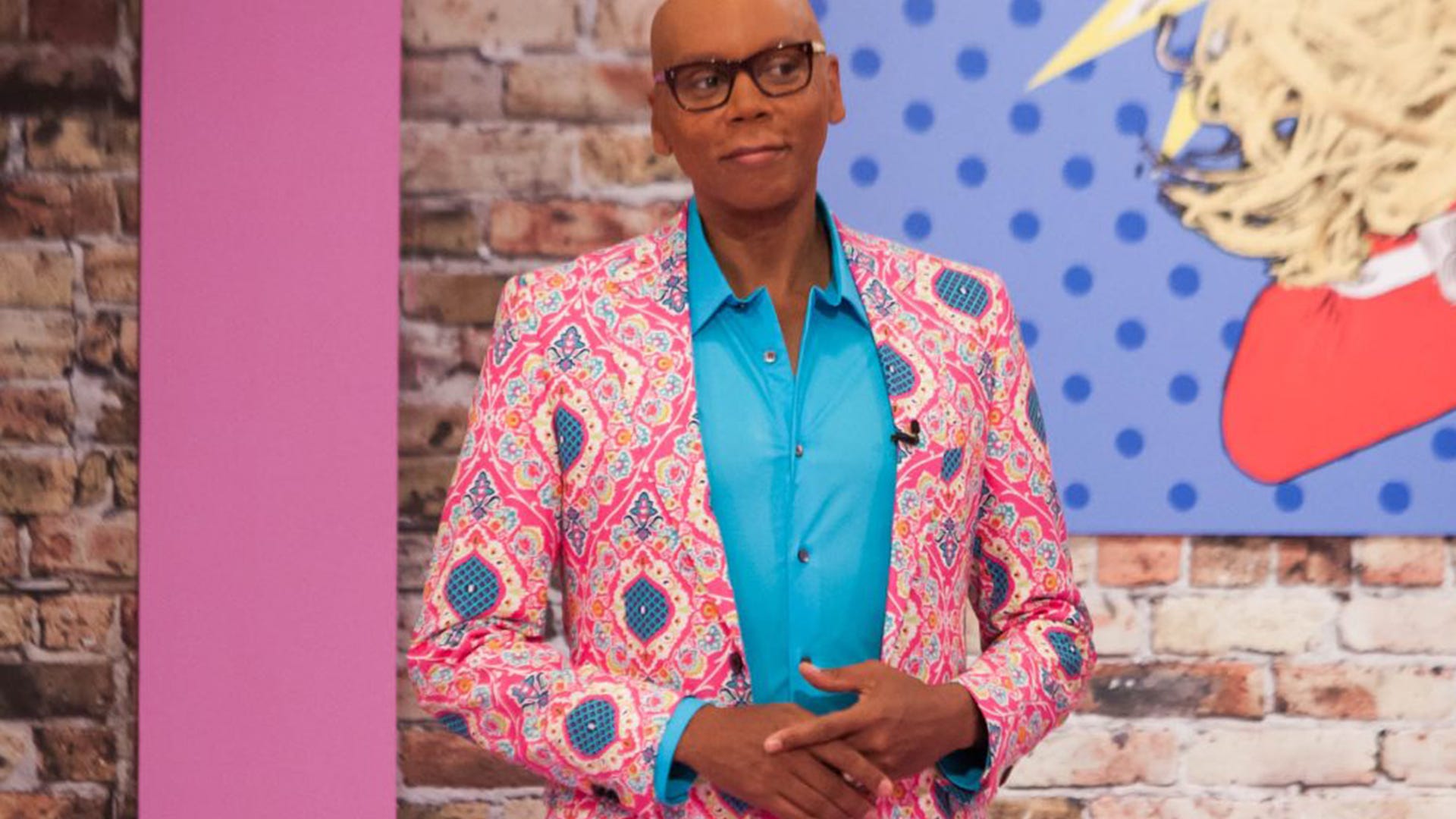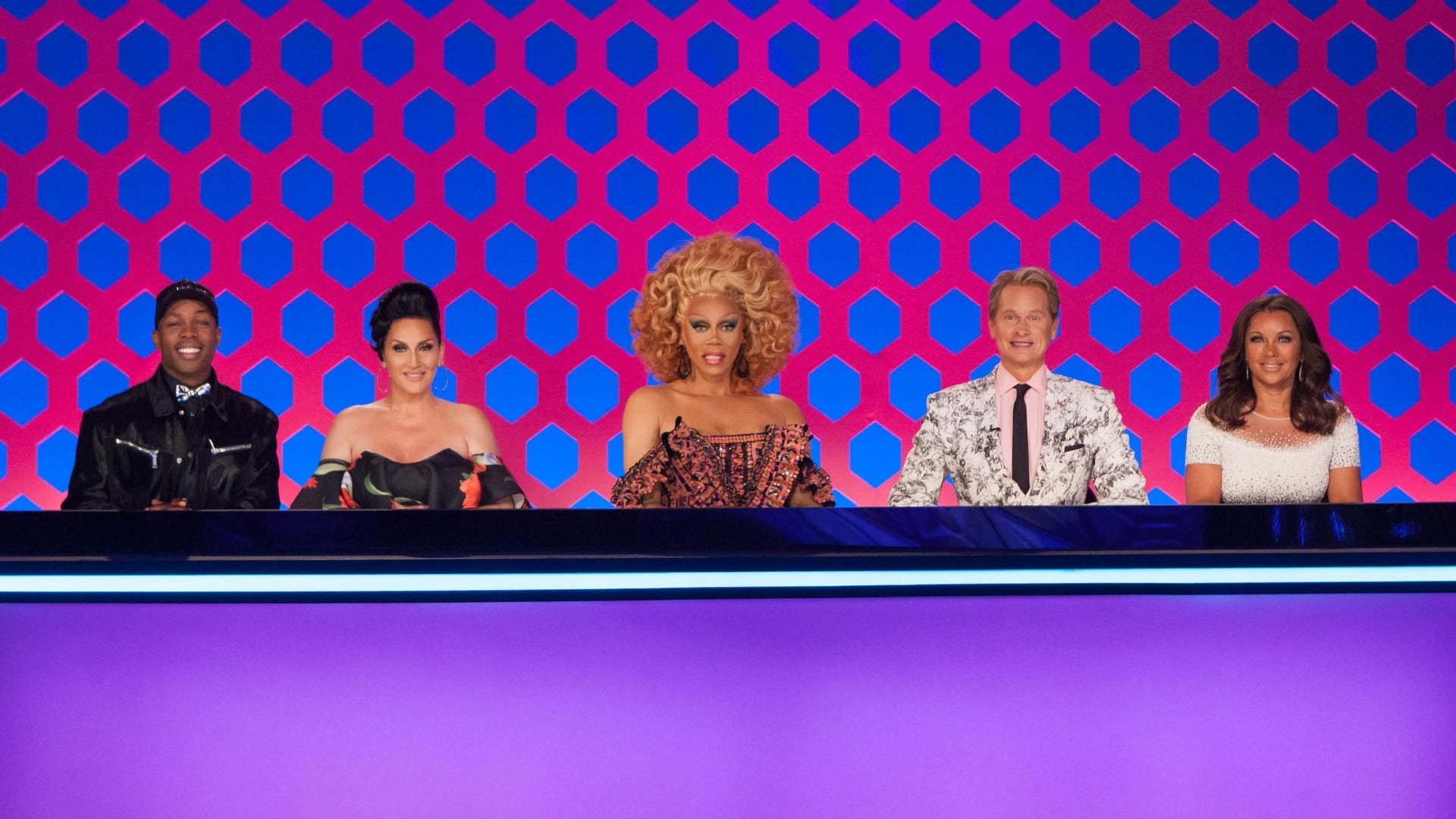Join or Sign In
Sign in to customize your TV listings
By joining TV Guide, you agree to our Terms of Use and acknowledge the data practices in our Privacy Policy.
How RuPaul's Drag Race Taught a Whole Generation of Queens to Love Themselves
Can we get an amen up in here?
The most significant part of RuPaul's Drag Racecomes at the end. Since 2009, the series has invited people into a magical, wild wonderland full of illusionists, acrobatics and instantly quotable lines so delightful that the potency of that final moment, when RuPaul says, "If you can't love yourself, how the hell you gonna love somebody else?" is easy to miss.
RuPaul's Drag Race is not about being snatched or snatching trophies. Ru has said over and over again that drag is the art of putting things on to shed layers, about trying on new identities to escape the confining notion of identity itself. RuPaul's Drag Race's real work is teaching its queer competitors and viewers how to practice loving themselves, which means different things for different people. While every reality show shoves contestants into insane circumstances that make for good TV, RuPaul's Drag Race speaks to people who've traditionally not had positive role models -- who've been told their entire lives that their fundamental being was wrong. At its highest level, RuPaul's Drag Race is a spiritual challenge -- a path to enlightenment through wig glue and butt pads -- which explains why "If you can't love yourself, how the hell you gonna love somebody else?" is an indelible brand in the minds of everyone who's watched the show over its nine seasons. It is literally a mantra.

RuPaul
VH-1So much of RuPaul's Drag Race makes for dazzling entertainment, from the impersonations on The Snatch Game to the imaginative feats of fabric and double-sided tape. But it's the emotional gut punches nobody sees coming that make the show resonate the most -- those wallops are the result of Ru's children confessing their truths. Within Ru's mandate to love one's self is the implied understanding that self-love means showing up and presenting one's self to the world fully without shame or fear. There was Ongina (Season 1), who revealed she'd been living with HIV for two years, bawling like a dam burst within her. Kim Chi (Season 8) confided that she'd hidden her career from her family, out of fear and shame instilled in her from her Korean parents. Cynthia Lee Fontaine (Seasons 8 and 9) revealed that one of her friends died in the Pulse nightclub massacre in Orlando -- a tragedy she'd have experienced first-hand if not for a last minute schedule change. Throughout almost every difficult reveal, Ru remains the same: stoic, strong and firmly planted. His largely unemotional responses may seem indifferent, but really, his non-reactions recognize the queens' ability to make it through whatever life threw at them.
Watch RuPaul's Drag Race Stars Read Donald Trump to Filth
This ain't The Bachelor or even Project Runway. Middle-class, college-educated kids with loving, nurturing families and stellar self-esteem are the outliers. Many contestants on RuPaul's Drag Race have endured health crises. Some have found the courage to pursue living in a body that corresponds with their true gender identity. Almost all are survivors of discrimination and degradation, from the world at large or their own families. For these people, merely practicing self-love is a radical, rebellious "F--- you!" to the world, but the moxie to even develop that attitude in a hostile world is a prerequisite for being in Ru's divine presence in the first place. Here, self-love also means an intolerance for stagnancy or excuses. Ru consistently greets prolonged self-pity with nothing but irritated dismissal. His advice often boils down to some version of "What do you think you should do?" or "How do you think you should solve this problem?" He teaches girls to fish, as it were, lighting the path to self-love with simple, consistent advice that asks queens not to find themselves but to be themselves, snap into the present and seize the abundance right in front of them. Yes, TV's most foremost therapist and life coach is a 6' 4" black man who fixes lives while wearing gowns and heels, and everyone watching is all the better for it.

Michelle Visage, RuPaul and Carson Kressly, RuPaul's Drag Race
VH-1As tough as he is, Ru does not sit on a perch so high he can't show his own humanity. It happens rarely, but sometimes he even gets caught up, like in that emotional wood chipper of a moment in Season 5 when Roxxy Andrews said through heaving sobs that she could still remember her mom abandoning her at a bus stop at age 3, a trauma she still isn't over. Ru, usually unflappably regal, has heard wrenching stories of people going from despair to hope because of this show thousands of times, but this one nearly broke him down. "As gay people we get to choose our family," he said, fighting back tears at the judges' table. "We are a family here. I love you." This show literally requires people to throw shade, read other bitches for filth and slay them in fierce competitions, but Ru walks his own walk by showing that he loves other people -- an assurance of hard earned self-love within.
Most everyone will say they love themselves, but RuPaul's Drag Race makes people prove it: to surrender past traumas, to commit to the best expression of themselves no matter the cost. It's church with costumes, a runway, a fierce DJ and tawdry sex jokes. "Drag gives people a reason to go out and be together and celebrate our gayness," Ru told contestants in the second season of the All Stars competition, when all the queens were still grieving after 49 gay people were murdered at Pulse. It was a sobering moment for a show about maintaining illusions; here, the fantasy that anti-gay violence could not occur in a safe space specifically for gay people shattered. As he always does, Ru rose to the moment to give the sermon they needed. "You're all incredible warriors to our cause, which is beauty and love and color and music and dancing," he told them. It was a reminder that the purpose of the show is to arm the people on it (and those watching) with the fortitude to change the world for the better, but that had to start with self-love. Because really, how the hell can you love somebody else if you can't love yourself?
RuPaul's Drag Race All Stars Season 3 airs Thursdays at 8/7c on VH-1.
